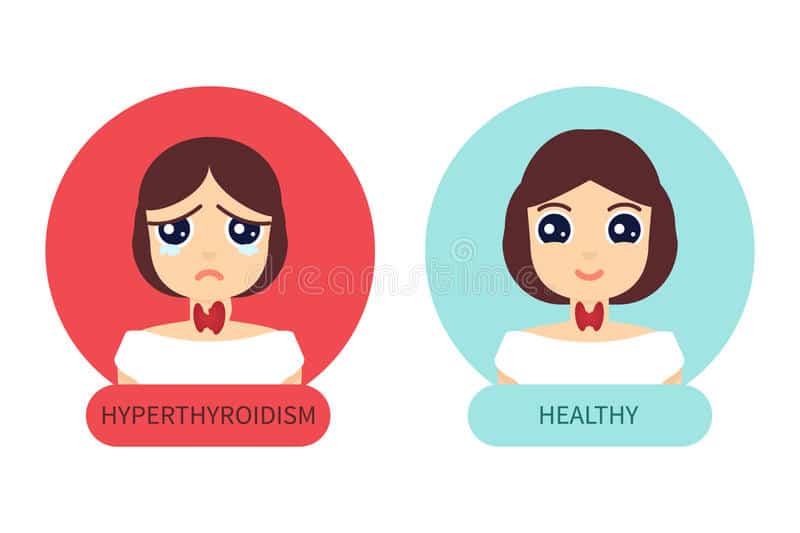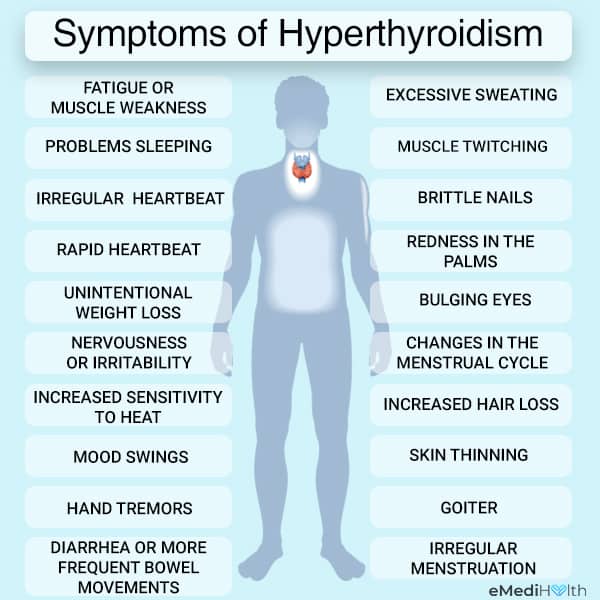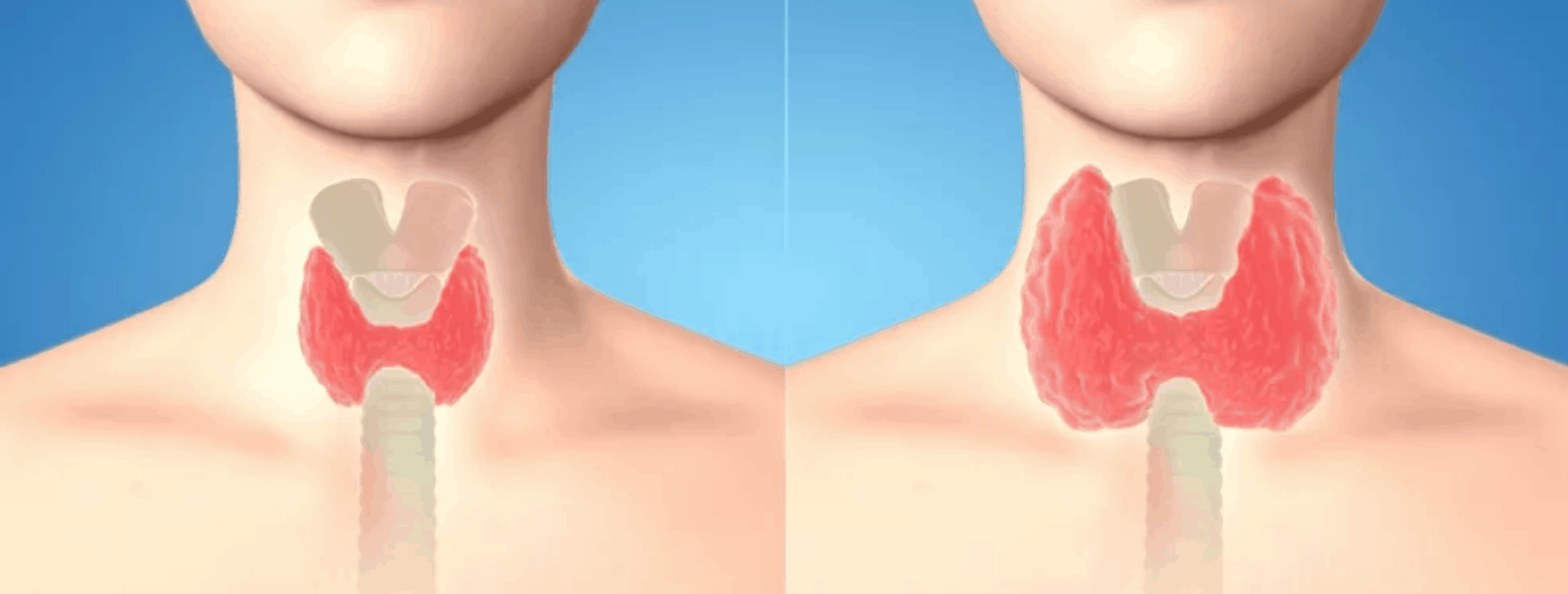We all have medical questions that we want answered – that’s why Dr. Amna Asif is here to provide us with her expert opinion! Every other week, she will be sharing her expert advice with us regarding a range of topics our followers are interested in learning more about. This week in Doc Talk, she talks about hyperthyroidism. Read ahead to find out what exactly it is, what the causes and symptoms are, and more:

What Is Hyperthyroidism?
Around one in 20 people will experience some form of thyroid dysfunction in their lifetime. The thyroid is a gland in the neck, near the base of the throat. It is responsible for making hormones that help control some of the body’s metabolic processes, such as heart rate, blood pressure, body temperature and weight.
An overactive thyroid is known as hyperthyroidism (sometimes referred to as Thyrotoxicosis), and this condition tends to affect women more than men. Around two in every 100 women will experience some degree of hyperthyroidism.
The most common cause is Graves’ disease. Other causes of an overactive thyroid include local inflammation (Thyroiditis), nodules or lumps. There is no cure for hyperthyroidism, but it can be successfully managed with treatments such as anti-thyroid medication.
Graves’ disease
The most common cause of hyperthyroidism is Graves’ disease, which is caused by an abnormality in the immune system. A key element of the immune system is the antibody, which helps to fight infections. In a person with Graves’ disease, the immune system manufactures antibodies which stimulate the thyroid uncontrollably. Women are affected eight times more than men. Graves’ disease is more common in middle aged individuals, although children and adolescents can also be affected.
Symptoms
The most common symptoms of hyperthyroidism are feeling nervous or anxious, being unable to tolerate heat, heart palpitations, feeling tired and losing weight, even if you’re eating the same amount of food.
Other symptoms and signs can include:
- Enlarged thyroid (goitre)
- Shortness of breath
- Eye problems/bulging eyes
- Increased appetite with or without weight loss
- Tremors (shaking of hands)
- Sweating
- Diarrhoea
- Menstrual patterns
- Thin skin
- Fine, brittle hair
- Difficulty sleeping
As well as the general symptoms of hyperthyroidism, a person with Graves’ disease shows particular symptoms including:
- Thyroid eye disease, causing inflammation and protruding eyes in 50 per cent of cases
- Eye swelling (in 50% of cases)
- Coarsening and reddening of the skin on the shins.
Other thyroid disorders
There are some less common but important disorders of thyroid gland which include:
- Nodules: These are lumps in the thyroid. ”Hot” nodules cause Hyperthyroidism as they produce the thyroid hormone in excess. “Cold” nodules are generally harmless, but about 20 percent can be cancerous.
- Cancer: Thyroid cancer is uncommon but requires early diagnosis to be successfully treated.

Diagnosis
Your doctor will check your neck to see if your thyroid is enlarged or has nodules (lumps), and will look for other signs of hyperthyroidism such as a fast heart rate.
To diagnose hyperthyroidism, a blood test is done to measure the level of your thyroid hormones. An imaging test called a radioactive thyroid scan or ultrasound of thyroid gland may also be done.
Treatment Options
There is no cure for hyperthyroidism, but there are ways to successfully manage the condition, including:
- Medication – The thyroid gland relies on iodine to make the thyroid hormones. Anti-thyroid drugs such as Propylthiouracil (PTU) or Carbimazole work by interfering with the gland’s ability to use iodine. Side effects of the medications include skin rashes and joint pain. Patients on these drugs who experience fever or flu-like symptoms should see their doctor immediately, as the drugs can suppress the immune system.
- Radioiodine therapy – Radioactive iodine is taken as a drink. The iodine is taken up by the active cells in the thyroid, which are then killed. Other cells do not absorb the iodine. The radioactive iodine is then excreted in the urine with no reported side effects. Patients should avoid contact with adults for a few days and with children and pregnant women for a longer period.
- Surgery – Some or all of the thyroid gland is surgically removed under general anaesthesia. There are normal surgical risks associated with this procedure, as well as the possibility of damaging the parathyroid glands (which lie next to the thyroid gland) and the nerve supplying the vocal cords.
From Overactive To Underactive
A person who has had hyperthyroidism should have his or her thyroid hormone levels (TSH, T4 and T3) checked on a regular basis. This is because most people who are treated for hyperthyroidism eventually develop hypothyroidism. The treatment causes the thyroid to become underactive. The symptoms include lethargy, unexpected weight gain, constipation and sensitivity to the cold. Under-activity is treated by hormone replacement with Thyroxine tablets.
This switch from overactive to underactive can seem like treatment simply replacing one condition with another, but under-activity is easily treated with hormone replacement without side effects, whereas untreated overactivity is a serious condition which invariably proves to be life threatening.
Things To Remember
- The thyroid gland controls important metabolic processes such as growth and energy expenditure.
- Hyperthyroidism means the thyroid gland is overactive.
- Graves’ disease (an immune system abnormality) is the most common cause of hyperthyroidism.
- People treated for hyperthyroidism usually end up with an underactive thyroid – known as hypothyroidism.








What do you think?
You must be logged in to post a comment.